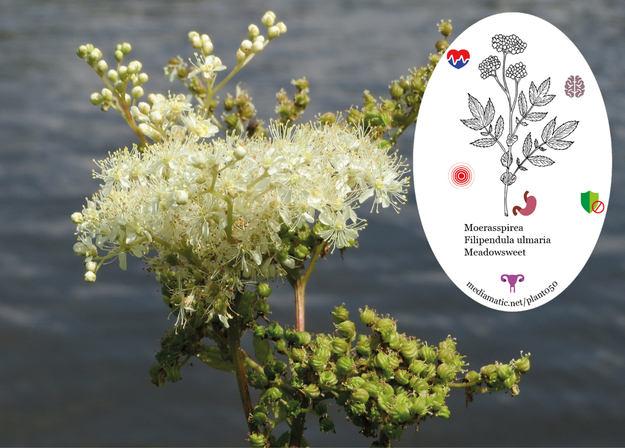Meadowsweet has a very long history of herbal use, it was one of the three most sacred herbs of the Druids. The leaves and flowering stems are alterative, anti-inflammatory, antiseptic, aromatic, astringent, diaphoretic, diuretic, stomachic and tonic. The plant is harvested in July when it is in flower and can be dried for later use. The flower head contains salicylic acid, from which the drug aspirin can be synthesised. Unlike the extracted aspirin, which can cause gastric ulceration at high doses, the combination of constituents in meadowsweet act to protect the inner lining of the stomach and intestines whilst still providing the anti-inflammatory benefits of aspirin. The herb is a valuable medicine in the treatment of diarrhoea, indeed it is considered almost specific in the treatment of children's diarrhoea. It is also considered to be a useful stomachic, being used to treat hyperacidity, heartburn, gastritis and peptic ulcers, for which it is one of the most effective plant remedies. It is also frequently used in the treatment of afflictions of the blood. Meadowsweet is also effective against the organisms causing diphtheria, dysentery and pneumonia. This remedy should not be given to people who are hypersensitive to aspirin. A strong decoction of the boiled root is said to be effective, when used externally, in the treatment of sores and ulcers. A homeopathic remedy is made from the fresh root. The German Commission E Monographs, a therapeutic guide to herbal medicine, approve Filipendula ulmaria Meadowsweet for cough, bronchitis, fever and cold. Source: https://pfaf.org/
Meadowsweet
Filipendula ulmaria
Find more about this plant on Wikipedia.
